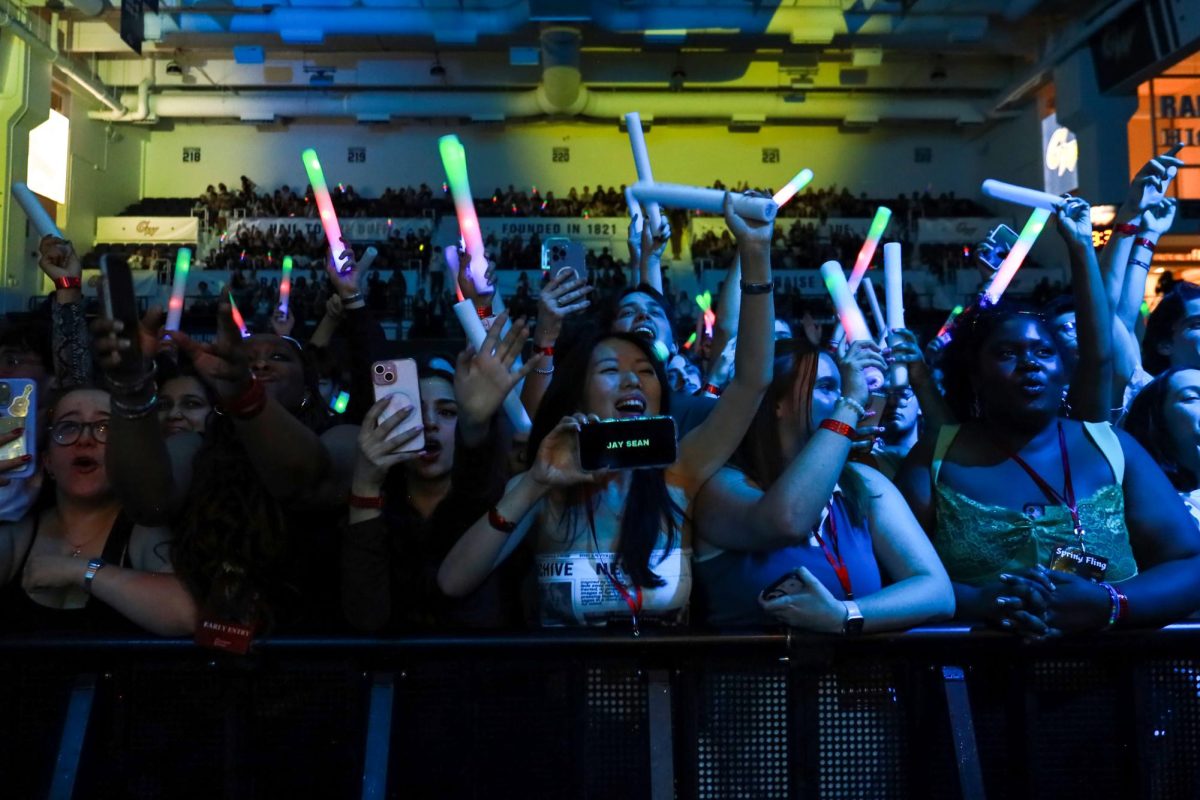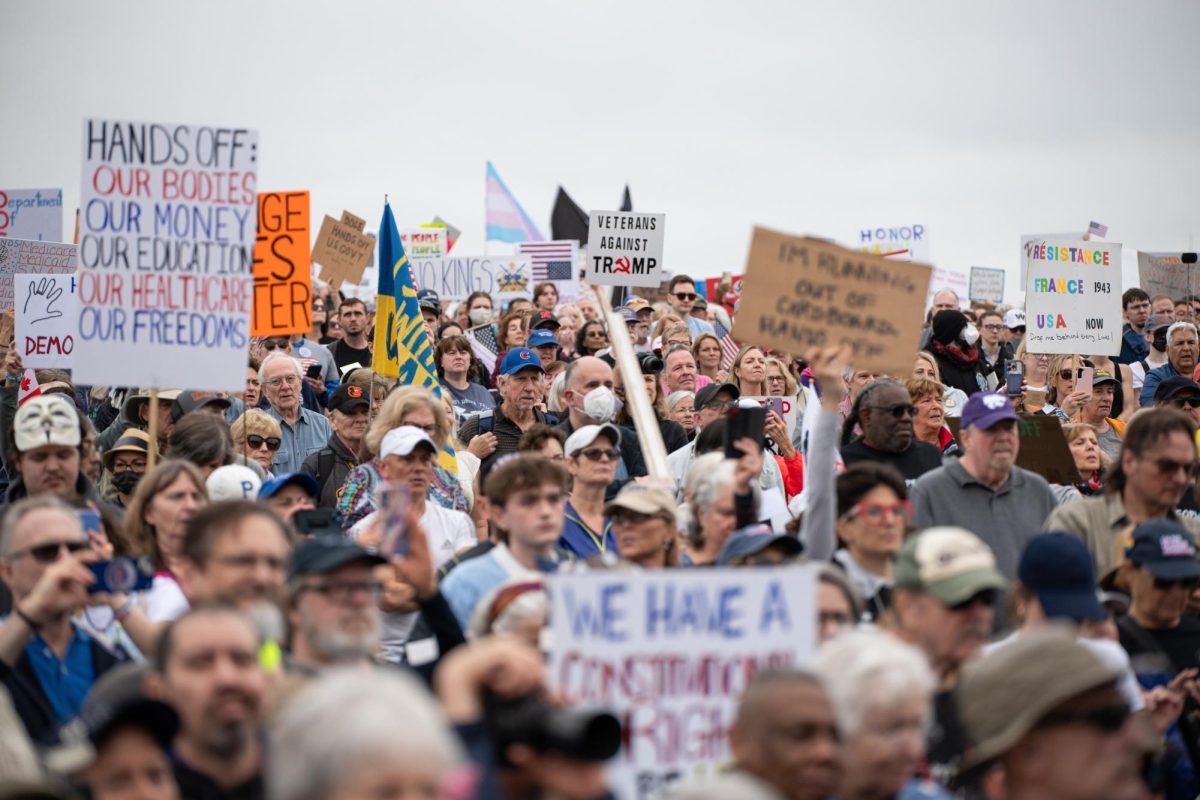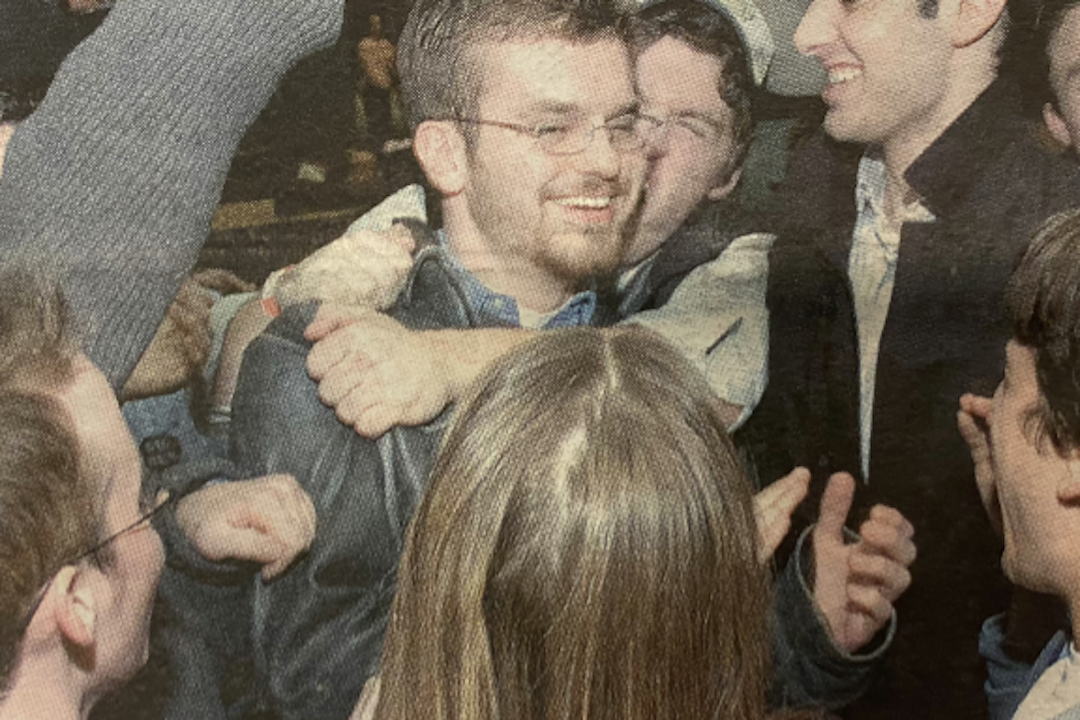Normally, having a man triple my age calling me “sweetie” and acting as my significant other would make me extremely uncomfortable.
But in my newly assumed identity – Taylor Koosha, a 47-year-old female refugee trying to protect a seven-member family from violent military personnel, disease and starvation – it was comforting.
The six-hour intense hike through wooded Virginia, known as the Red Cross’s annual Global Refugee Simulation, shows the difficulties that refugees face when fleeing their home nation amid political and military violence. It’s representative of what 42 million refugees around the world encounter each year, according to 2009 estimates by the United Nation Human Rights Council – a number doesn’t include displaced people from the Egyptian, Syrian, Israeli-Palestinian or Libyan conflicts.
The identities we assumed during the simulation were false, but felt extremely real.
11:14 a.m. – Checking in
At the check-in site in Kogan Plaza, Red Cross student volunteers distribute simulation materials – family assignments, a passport and currency. Volunteers present me and the other females in my “family” with several yards of burlap that we’re supposed to tie around our waists to cover our legs to avoid gender discrimination from military personnel.
They also hand me two small green plastic chips that symbolize my dignity and sense of self.
“The military men will scream at you, discriminate against you and attempt to force you to trade or barter your dignity for food and other supplies,” one volunteer says. “Protect it. Don’t let anybody take that away from you.”

11:57 a.m. – Family assignment
Aboard a charter bus to Bull Run Park in Manassas, Va., my new family leafs through an information packet. We learn that we’ve been forced from our suburban home after our country’s religious majority burned down the family deli for selling food popular among our minority ethnicity.
12:00 p.m. – The simulation begins
Once the bus rolls into the rain-soaked park, our group leader tells us that the simulation had begun and everyone we encounter will be in character. Upon noticing the bus, military men with rifles strapped across their chests run to its sides and began banging on the metal, screaming, “Move, move, move!”
12:32 p.m. – Navigating a minefield
Knee-deep in muddy burlap, I see a tree with a red skull and crossbones on its trunk, signaling a minefield. For a half mile, we have to watch for what look like miniature brown air horns between leaves in the ground. If a participant steps on one, a siren sounds and they’re “dead.”
On our way through the woods, I am forced away from my family. I tell myself that it’s just a simulation – I’ll be okay. But it doesn’t help the sense of danger creeping in now that I have to do this by myself.
2:45 p.m. – Crossing the border
In line at the border of the host country, security personnel begin pulling refugees out of line for interrogation. They only speak French.
I hear shouting behind me, and I turn to see my family come bounding from behind the last passport security checkpoint.
“Mommy!” screams my 36-year-old son. We laugh until one of the French officers marches up to us, smoking a cigarette and demanding to see our passports.
3:15 p.m. – Finding a home
I’m allowed to pass and after running to the UN’s registration booth to receive identity verification papers and a food ration card, we’re taken to a Red Cross medical station where a doctor determines that my asthma puts me at risk for contracting tuberculosis.
He hands me two packets of antibiotics – one to take and one to barter in the market for supplies.
4:30 p.m. – Resettlement
After huddling, muddy and wet, over a pot of rice and beans, a UN representative tells us that our application for resettlement – a permanent home outside of the refugee camp in a host country – had been denied.
Six families, including mine, then elect representatives to discuss education, health and land use policies. When she believes we’ve thought sufficiently about life as a refugee, the UNHCR rep tells us we’re free to go.
I note with glee that I’ve managed to make it through without losing any of my dignity.






